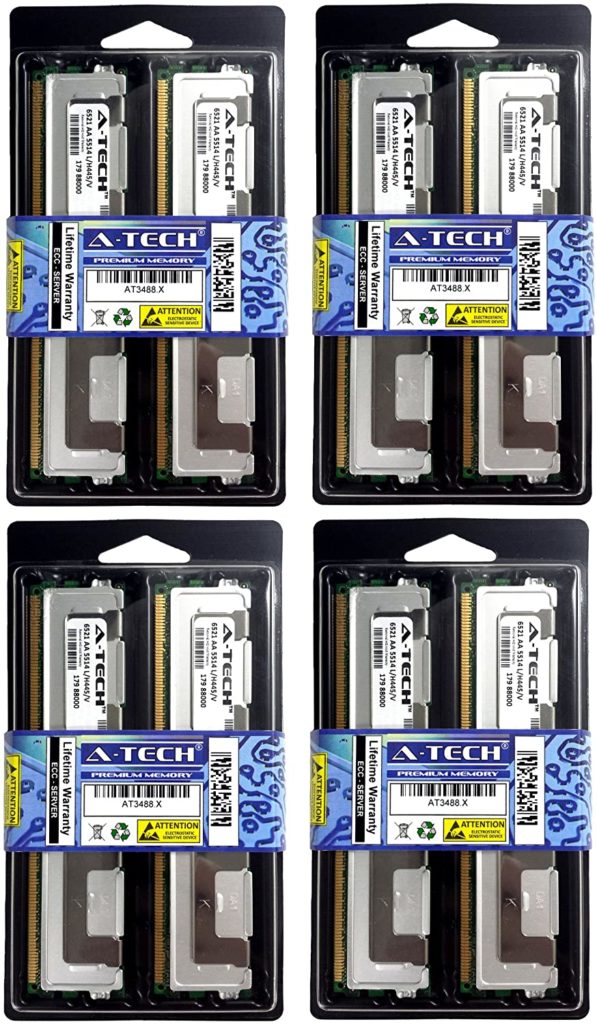What is the difference between buffered and unbuffered RAM?
RAM is an abbreviation of Random Access Memory. The memory requires a constant flow of power to retain data since it is non-volatile. The performance of a system is determined by RAM.
The main difference between buffered and unbuffered RAM is that buffered RAM contains a register between the DRAM and memory controller whereas unbuffered RAM does not contain a register between DRAM and memory controller.
Read More: Difference between One Way and Two Way Anova
Comparison Table (Buffered vs Unbuffered RAM)
| Basic Terms | Buffered RAM | Unbuffered RAM |
| Meaning | It is a memory module that has a register between the DRAM and the memory controller | It is a memory module that does not have a register between the DRAM and the memory controller |
| Alternative Name | Registered RAM | Unregistered RAM |
| Reliability | Highly reliable in the storage of data | Less reliable in the storage of data |
| Effect on Memory Controller | Places less electrical load on the memory controller | Place more electrical load on the memory controller |
| Stability | More stable | Less stable |
| Cost | Too expensive | Less expensive |
| Application | Suitable for servers and other mission-critical systems that require a stable operating environment | Suitable for desktop and laptops |
What Is Buffered RAM?
It is a memory module that contains a register between the DRAM and the memory controller. It is a single system that does not place more electrical load on the memory controller.
Buffered RAM is highly applicable to high-end systems such as servers and mission-critical systems that require a stable operating environment.
It is quite easier to identify Buffered RAM due to the presence of an additional chip in the middle of the module.

What Is Unbuffered RAM?
It is a memory module that does not contain a register between the DRAM and the memory controller. It places a high electrical load on the memory controller.
Unbuffered RAM is mostly applicable in laptops and desktops. The good news is that it tends to be less expensive but unreliable in terms of data storage.

Main Difference between Buffered and Unbuffered RAM
- Buffered RAM is a memory module that contains a register between the DRAM and the memory controller whereas unbuffered RAM does not contain a register between the DRAM and memory controller
- Unbuffered RAM tend to place more electrical load on the memory controller whereas buffered RAM places a less electrical load
- Buffered RAM is highly reliable in terms of data storage whereas unbuffered RAM is unreliable in data storage
- Unbuffered RAM is also known as unregistered RAM whereas buffered RAM is also called registered RAM
- Buffered RAM tends to be quite costly whereas unbuffered RAM is less costly
- Unbuffered RAM is applicable in desktops and laptops whereas buffered RAM is applicable in high-end systems like servers
You May Also Like: Difference Between ANSI Lumens and Lumens
Similarities between Buffered and Unbuffered RAM
- Both are used in data storage
- Both entail memory controller
- Both use electrical loads
- Both determine the performance of a system
Read More: Difference between Kerberos Version 4 and Version 5
Buffered vs Unbuffered RAM FAQs
Is Buffered or Unbuffered RAM Better?
Unbuffered RAM is the best choice for the standard system due to its affordability and higher performance. But buffered RAM is a great bet for critical systems that require a more stable operating environment.
Can You Use Buffered and Unbuffered Memory?
No. The design of computer memory tends to dictate whether to use buffered or unbuffered memory.
Is Unbuffered RAM Better for Gaming?
No. The RAM is typically meant for workstations. The best memory module for gaming is buffered RAM due to its reliability and stability.
How Do I know If My RAM is Unbuffered?
It is advisable to look at the leads next to the first notch. Unbuffered RAM does not have evenly spaced leads.
Comparison Video
Conclusion
The core difference between buffered and unbuffered RAM is that buffered RAM is more stable and reliable whereas unbuffered RAM has standard stability and reliability.
Keep in mind that buffered RAM is suitable for servers and critical missions that required a stable operating environment.
More Sources and References
- Registered Memory. Wikipedia
- Server Memory. Kingston